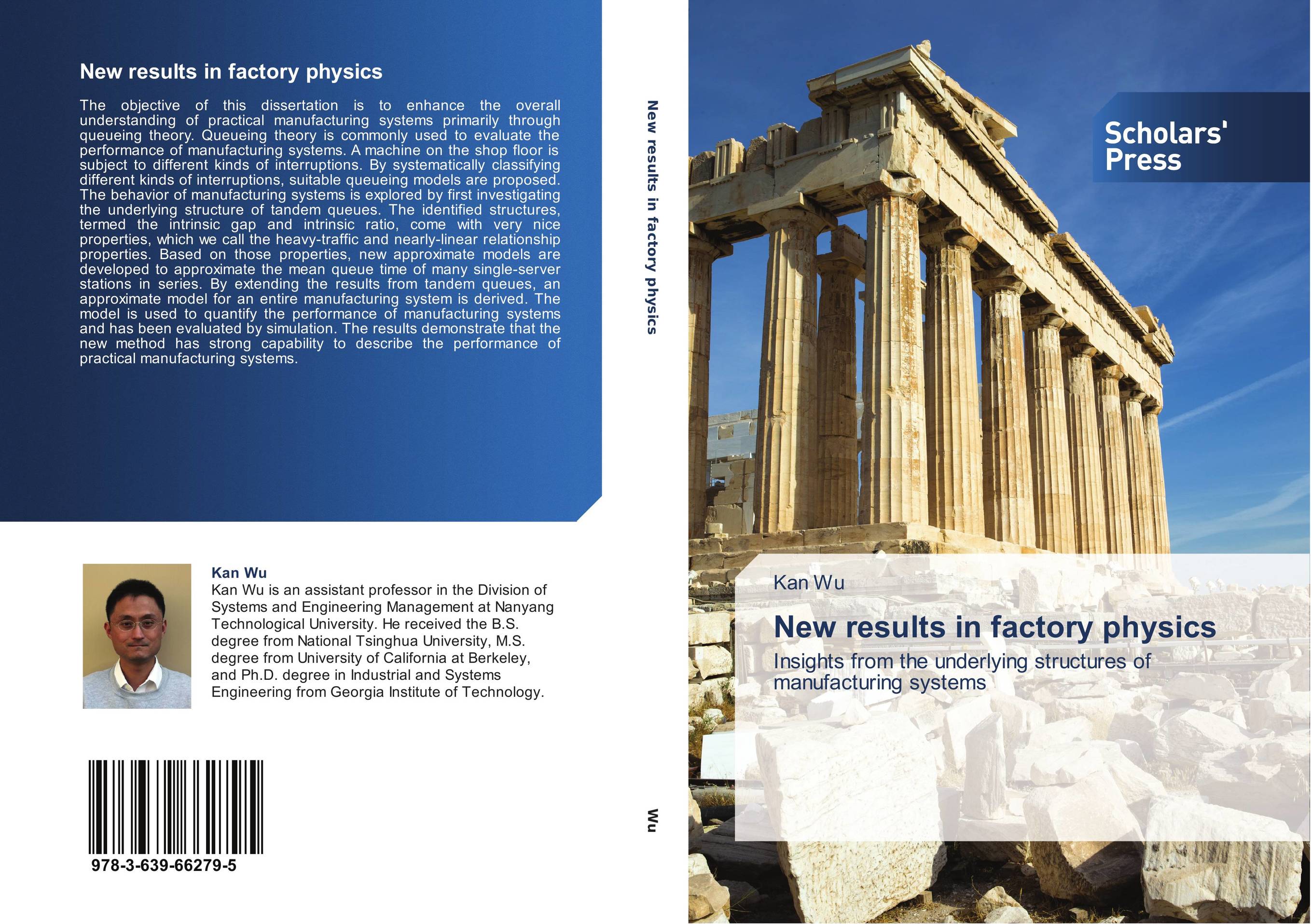| Поиск по каталогу |
|
(строгое соответствие)
|
- Профессиональная
- Научно-популярная
- Художественная
- Публицистика
- Детская
- Искусство
- Хобби, семья, дом
- Спорт
- Путеводители
- Блокноты, тетради, открытки
New results in factory physics. Insights from the underlying structures of manufacturing systems

В наличии
| Местонахождение: Алматы | Состояние экземпляра: новый |

Бумажная
версия
версия
Автор: Kan Wu
ISBN: 9783639662795
Год издания: 2014
Формат книги: 60×90/16 (145×215 мм)
Количество страниц: 272
Издательство: Scholars' Press
Цена: 57359 тг
Положить в корзину
| Способы доставки в город Алматы * комплектация (срок до отгрузки) не более 2 рабочих дней |
| Самовывоз из города Алматы (пункты самовывоза партнёра CDEK) |
| Курьерская доставка CDEK из города Москва |
| Доставка Почтой России из города Москва |
Аннотация: The objective of this dissertation is to enhance the overall understanding of practical manufacturing systems primarily through queueing theory. Queueing theory is commonly used to evaluate the performance of manufacturing systems. A machine on the shop floor is subject to different kinds of interruptions. By systematically classifying different kinds of interruptions, suitable queueing models are proposed. The behavior of manufacturing systems is explored by first investigating the underlying structure of tandem queues. The identified structures, termed the intrinsic gap and intrinsic ratio, come with very nice properties, which we call the heavy-traffic and nearly-linear relationship properties. Based on those properties, new approximate models are developed to approximate the mean queue time of many single-server stations in series. By extending the results from tandem queues, an approximate model for an entire manufacturing system is derived. The model is used to quantify the performance of manufacturing systems and has been evaluated by simulation. The results demonstrate that the new method has strong capability to describe the performance of practical manufacturing systems.
Ключевые слова: Operations Research; Manufacturing Systems; Production Systems; Queueing Theory



